
Journal of Grid Computing
Scope & Guideline
Pioneering Discoveries in Collaborative Computing
Introduction
Aims and Scopes
- Resource Management and Optimization:
Research in this area emphasizes techniques for efficient resource allocation, scheduling, and management in cloud and edge computing environments, often utilizing algorithms and heuristics to enhance system performance. - Distributed Computing Architectures:
The journal covers studies related to the design and implementation of distributed computing systems, including the integration of edge and fog computing with traditional cloud architectures to improve service delivery and operational efficiency. - Machine Learning and AI Applications:
There is a significant focus on the application of machine learning and artificial intelligence techniques to optimize computing processes, enhance predictive capabilities, and improve decision-making in resource management. - Security and Privacy in Cloud Computing:
Papers addressing security challenges in cloud and edge environments are prevalent, encompassing methods to safeguard data integrity, confidentiality, and availability through innovative frameworks and technologies. - Emerging Technologies Integration:
The journal explores the convergence of various emerging technologies such as IoT, blockchain, and 5G with cloud and edge computing, aiming to foster innovative solutions for smart city applications, healthcare, and industrial automation. - Sustainability and Energy Efficiency:
Research also emphasizes energy-efficient computing practices and sustainable resource management strategies to minimize environmental impact, particularly in data centers and large-scale distributed systems.
Trending and Emerging
- Federated Learning and Collaborative Computing:
Recent publications indicate a rising interest in federated learning, emphasizing collaborative approaches to resource management and machine learning that respect data privacy while enhancing model performance. - Edge Computing and IoT Integration:
The integration of edge computing with IoT is becoming increasingly prominent, focusing on optimizing data processing and resource allocation closer to data sources for improved efficiency and reduced latency. - Blockchain for Enhanced Security:
There is a growing trend towards employing blockchain technology to enhance security and trust in cloud and edge environments, particularly for applications in healthcare and supply chain management. - AI-Driven Optimization Techniques:
The application of artificial intelligence for optimization in scheduling, resource allocation, and performance prediction is gaining traction, reflecting a shift towards data-driven methodologies. - Energy-Efficient and Sustainable Computing:
Emerging themes in sustainability are evident, with a focus on energy-efficient computing practices and the development of green technologies to minimize the environmental impact of computing operations. - 5G and Network Optimization:
The exploration of 5G technologies and their implications for network optimization in cloud and edge computing environments is increasingly relevant, as researchers seek to leverage high-speed connectivity for improved service delivery.
Declining or Waning
- Traditional Grid Computing Models:
Research specifically dedicated to traditional grid computing models has seen a decrease, possibly due to the broader adoption of cloud and edge computing paradigms, which offer more flexible and scalable solutions. - Static Resource Allocation Techniques:
There is a waning interest in static resource allocation methods, as dynamic and adaptive approaches that leverage real-time data and machine learning gain traction for their superior performance in fluctuating workloads. - Single-Cloud Solutions:
Papers focusing solely on single-cloud solutions are less frequent, as the trend shifts towards multi-cloud and hybrid cloud environments that provide greater flexibility and redundancy. - Basic Scheduling Algorithms:
Research on basic scheduling algorithms without the integration of advanced techniques such as AI or machine learning is becoming less common, as the field moves towards more sophisticated and intelligent scheduling frameworks. - Generalized Security Protocols:
There is a noticeable decline in generic security frameworks, with more emphasis shifting towards specialized, context-aware security solutions that address the unique challenges presented by modern computing environments.
Similar Journals
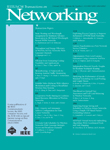
IEEE-ACM TRANSACTIONS ON NETWORKING
Navigating the Complexities of Network EngineeringIEEE-ACM Transactions on Networking, published by the esteemed IEEE-Institute of Electrical and Electronics Engineers Inc., stands as a pivotal source of research within the realms of Computer Networks and Communications, Computer Science Applications, Electrical and Electronic Engineering, and Software. With an impressive impact factor and recognized as a Q1 journal across multiple categories in 2023, it ranks among the top journals in its field, reflecting its influential scholarship and rigorous peer-review process. The journal has been continuously published since 1993 and features cutting-edge research that addresses the complexities and advancements in networking technologies. While it does not offer open access, its research is accessible through various academic platforms, ensuring that scholars, practitioners, and students can engage with and benefit from its rich content. The Scopus ranking further highlights its significance, with notable percentiles in engineering and computer science disciplines. This journal is essential for anyone seeking to stay ahead in the rapidly evolving area of networking.
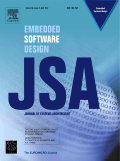
JOURNAL OF SYSTEMS ARCHITECTURE
Elevating Standards in Systems Architecture ResearchJOURNAL OF SYSTEMS ARCHITECTURE is a prestigious academic journal published by ELSEVIER, based in the Netherlands, that has established itself as a leading platform for research in the fields of Hardware and Architecture and Software. With an impressive impact factor and ranked in the Q1 category for both computer science sectors, this journal is recognized for its high-quality contributions, evidenced by its Scopus ranking of #32 in Hardware and Architecture and #74 in Software, placing it in the top percentiles of its field. The journal spans a wide range of topics central to systems architecture, focusing on innovative research that advances the understanding of computer systems and promotes future developments. Researchers, professionals, and students alike will find invaluable insights and emerging trends that address the challenges and opportunities within the rapidly evolving field of systems design and architecture. Spanning from 1996 to 2024, the JOURNAL OF SYSTEMS ARCHITECTURE continues to be a vital resource for those seeking to stay at the forefront of technology and research.
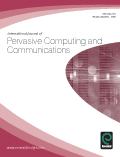
International Journal of Pervasive Computing and Communications
Elevating the conversation on pervasive computing.The International Journal of Pervasive Computing and Communications, published by EMERALD GROUP PUBLISHING LTD, is a leading academic journal dedicated to advancing the field of pervasive computing and communications. With an ISSN of 1742-7371 and an E-ISSN of 1742-738X, this journal serves as a premier platform for researchers, professionals, and students to explore innovative applications and technologies that enhance connectivity and computing experiences. Operating from the United Kingdom, the journal has consistently maintained a strong impact within the academic community, achieving impressive Scopus rankings, including a Q2 status in Computer Science (miscellaneous) and Q3 in Theoretical Computer Science, as of 2023. The journal encompasses a broad scope, encouraging papers that discuss interdisciplinary approaches and novel methodologies in computing. By sharing cutting-edge research, the International Journal of Pervasive Computing and Communications plays a vital role in shaping the discourse surrounding pervasive technologies and their societal impacts, making it an essential resource for those looking to remain at the forefront of this dynamic field.

Journal of Cloud Computing-Advances Systems and Applications
Pioneering Research in Cloud TechnologiesThe Journal of Cloud Computing - Advances Systems and Applications, published by Springer, serves as a premier platform for disseminating cutting-edge research in the fields of cloud computing, computer networks, and software technologies. With an impressive impact factor and ranked in the top quartile for Computer Networks and Communications and Software categories in 2023, this open access journal has gained significant recognition within the academic community since its establishment in 2012. The journal not only provides valuable insights into innovative applications and advancements in cloud technologies but also supports collaboration among scholars, practitioners, and industry leaders. Operating from the vibrant hub of New York City, it boasts a robust international readership, ensuring that the latest findings reach a diverse audience. Authors and researchers are encouraged to engage with this vital resource, which is dedicated to exploring the transformative potential of cloud computing across multiple disciplines.
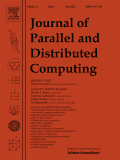
JOURNAL OF PARALLEL AND DISTRIBUTED COMPUTING
Unraveling the Complexities of Parallel ProcessingJournal of Parallel and Distributed Computing, published by Academic Press Inc. Elsevier Science, is a premier international journal that has been advancing the field of computer science since its inception in 1984. Renowned for its rigorous peer-review process and high-impact research, it holds an impressive impact factor and is categorized in the top quartiles (Q1 and Q2) across multiple domains, including Computer Networks and Communications, Hardware and Architecture, Software, Theoretical Computer Science, and Artificial Intelligence. The journal is dedicated to publishing cutting-edge research that explores the latest developments in parallel and distributed computing, fostering innovation and collaboration among researchers, professionals, and students alike. With a comprehensive scope that spans theoretical foundations, practical applications, and advanced technologies, it serves as an essential resource for anyone invested in these dynamic fields. As a testament to its influence, the journal ranks in the top tiers of Scopus citations, solidifying its reputation as a thought leader in computing research.

International Journal of Grid and Utility Computing
Fostering Collaboration in Cutting-Edge Computing ResearchInternational Journal of Grid and Utility Computing is a pioneering publication dedicated to advancing research in the domains of grid computing, utility computing, and their applications across various sectors. Initiated in 2005 and continuing through 2024, the journal is published by INDERSCIENCE ENTERPRISES LTD, a respected publisher known for its commitment to facilitating scholarly communication. With an ISSN of 1741-847X and an E-ISSN of 1741-8488, this journal, based in the United Kingdom, serves a global audience of researchers, professionals, and students. Although classified in the Q4 category across Applied Mathematics, Computer Science Applications, and Management Information Systems, the journal aims to bridge theoretical research with practical implementation, fostering interdisciplinary collaborations. Researchers looking for a platform to disseminate their work on grid technology and its utility in modern computing environments will find this journal an invaluable resource. The focus on innovative computing methodologies places it at the forefront of emerging trends and technology applications, despite the need for increased visibility in competitive metrics like Scopus rankings.

Scalable Computing-Practice and Experience
Transforming Ideas into Scalable RealitiesScalable Computing - Practice and Experience, published by UNIV VEST TIMISOARA, stands as a significant platform for research and discourse in the realm of computer science, particularly focusing on practical applications and scalability in computing systems. Established in 2005, it aims to bridge the gap between theoretical advancements and real-world implementations, catering to a diverse readership that includes researchers, professionals, and students who are keen on exploring innovative computing practices. With an H-index reflective of its contribution and a Category Quartile of Q3 in Computer Science (miscellaneous), the journal offers a rich repository of knowledge, albeit currently not open access, from its base in Timisoara, Romania. The journal is included in Scopus rankings, underscoring its relevancy with a current rank of #144 out of 232 in the General Computer Science category, placing it in the 38th percentile. It invites contributions that expand the horizons of scalable computing methodologies and experiences, making it a vital resource for those engaged in this rapidly evolving field.
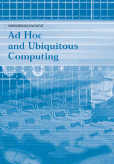
International Journal of Ad Hoc and Ubiquitous Computing
Empowering Knowledge in Computer CommunicationsThe International Journal of Ad Hoc and Ubiquitous Computing, published by InderScience Enterprises Ltd, is a premier platform dedicated to advancing the fields of computer networks, communication systems, hardware, and software architecture. Since its inception in 2005, this journal has served as a critical resource for researchers, professionals, and students aiming to explore the intricate dynamics of ubiquitous computing and ad hoc networks. Though currently not an open-access journal, its scholarly contributions are well-recognized, as evidenced by its rank in the Scopus database, which places it within the lower quartiles of its respective categories. With an increasing focus on innovative solutions in computer science, the journal aims to facilitate knowledge dissemination and encourage interdisciplinary collaborations. Researchers are particularly drawn to the journal for its comprehensive coverage of emerging technologies, making it an invaluable asset in a world increasingly reliant on sophisticated communication infrastructures. As it continues to thrive towards 2024, the journal remains committed to fostering a vibrant academic community.

Cluster Computing-The Journal of Networks Software Tools and Applications
Unleashing Potential in Networked Software InnovationsCluster Computing - The Journal of Networks Software Tools and Applications, published by Springer, is a premier academic journal catering to the vibrant fields of computer networks and software technologies. With an impressive impact factor and recognized as a Q1 journal in both Computer Networks and Communications and Software categories for 2023, it ranks within the top echelons of its field, boasting a Scopus rank of #50 out of 395 and #59 out of 407 respectively, highlighting its influence and reach. The journal, which has been in continuous publication since 2005, serves as a vital platform for groundbreaking research, offering insightful articles and tools that drive innovation in network computing. Researchers, professionals, and students are invited to contribute to and benefit from the dynamic discourse presented in this journal, which is pivotal for advancing knowledge and enhancing practical applications in a rapidly evolving technological landscape.
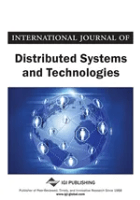
International Journal of Distributed Systems and Technologies
Driving Impactful Discoveries in Distributed Systems.Welcome to the International Journal of Distributed Systems and Technologies, a prominent academic platform published by IGI Global dedicated to advancing the field of distributed systems and technologies. With an ISSN of 1947-3532 and an E-ISSN of 1947-3540, this journal, established in 2010 and continuing through 2024, offers a unique venue for researchers, professionals, and students to disseminate their findings in the realms of computer networks, communications, hardware, and architecture. Despite its current placement in the Q4 quartile for both computer networks and communications and hardware and architecture categories in 2023, the journal is committed to fostering innovative solutions and interdisciplinary collaboration that can drive future advancements. Although not open access, contributions to this journal not only receive rigorous peer review but also have the potential to significantly impact the community, underscored by a focus on applicable research that addresses the emerging challenges in technology. As part of a rich repository, the journal invites you to explore its latest issues and join in shaping the future of distributed systems.